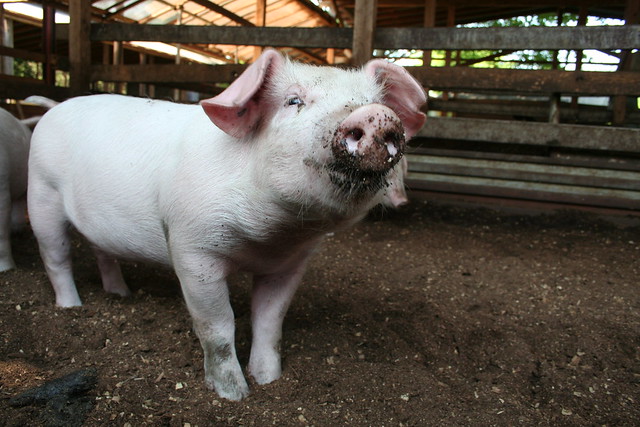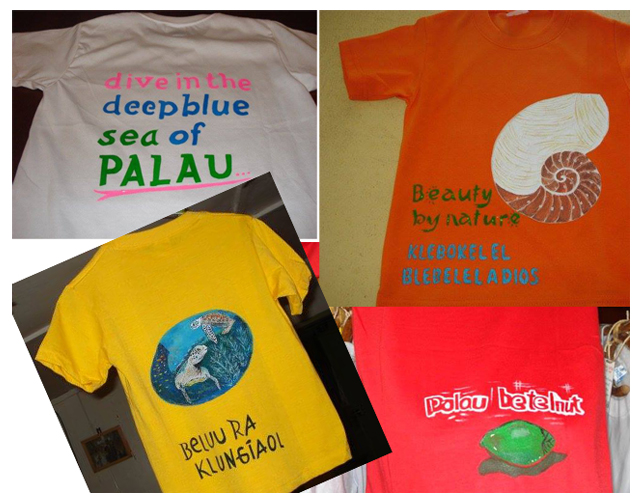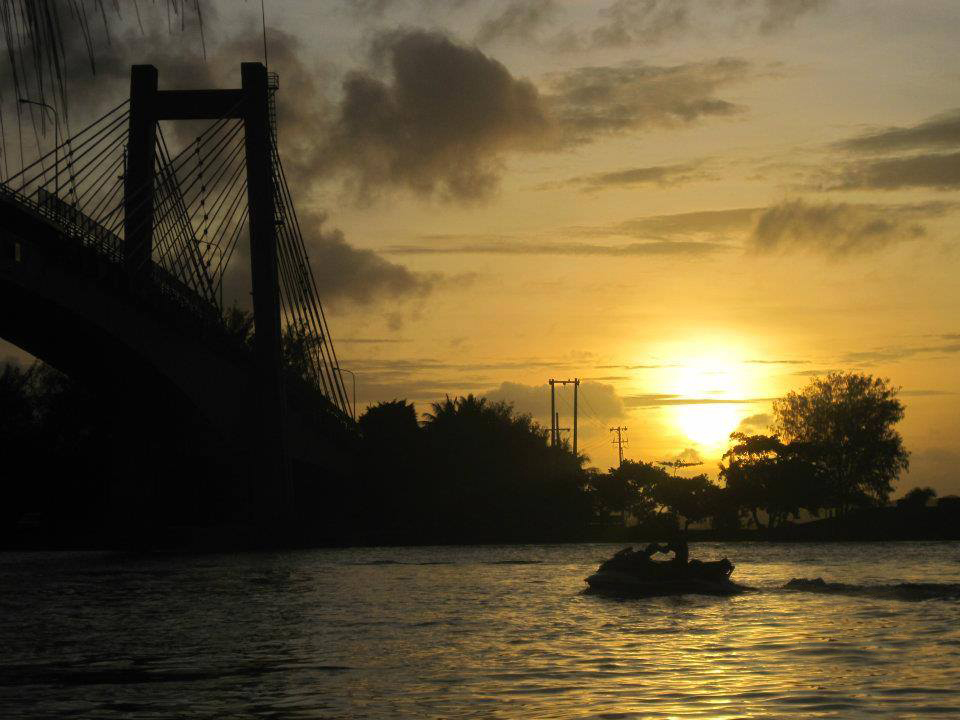The water reflects the perfect blue skies, the wind blows off fresh…another perfect day for a stroll. Perfect day, yes, but, I had a date then. Joan told me that she would just drop by her house to feed the pigs. I had to wait for about 30 minutes in a nearby store in Ngcherelong, a province in the northern part of Palau. I had a five-day holiday in this beautiful sunny island nation last year. I had to write down “sunny” because I wanted to pack my things away from Japan’s chilly winter! Palau is a small archipelago of approximately 300 islands lying in the Pacific Ocean situated east of the Philippines. The unique and fascinating reefs and islands are the primary places of interest in this island nation.
Joan has three pigs. Thanks to her part-time job as a tour guide. She was able to buy the pigs after organizing a lovely tour for a group of Korean visitors to the Rock Islands – the best of Palau’s natural wonders.

According to her, as we drove down to Palau’s business city of Koror, the aim of the Government is to promote tourism industry to support economic growth while maintaining the ecological balance of marine and land ecosystems. The Palau Visitors Authority (PVA) mentioned that the local economy relies primarily on tourism, which attracts approximately 80,000 overseas visitors per year, generating more than US$1.5 million in taxes annually. With this figure, tourism becomes one of the primary sectors of employment in the country. Joan, among other locals, benefits from this industry.
If without foreign clients, Joan spends her time administering a small faith-based NGO for underprivileged children based in Koror. She, together with a team, teaches children the art of hand painting. To date, they have sold more than 2,000 shirts designed with Palau colors and traditional symbols. These hand painted shirts also support the NGO’s financial operation. Partnering with several local stores, the NGO earns 3 dollars for every shirt sold.

Having been made by local underprivileged children, these shirts stand out in the local market, not to mention that the proceeds of the sales do help continue the NGO’s goal, vision and mission.
Through the NGO’s activities, many children and teens spend their time meaningfully in the afternoon or during the weekends, hence, staying away from drugs and teen-related crime in the island. This NGO works to empower communities (especially children) to become independent, creative and young entrepreneurs. In the same manner, they also steward Palau’s environment that promotes the country’s booming tourism.
Though the NGO’s work does not directly help the government in preserving the beauty of Palau, the mission to work with the community, through hand painting and upholding children’s welfare, provides an impact towards having social and economic benefit to present and future generations of Palau.
Tourism in Palau not only made Joan proud of her heritage. Tourism also made her relentlessly serve her family, her community and the whole nation of Palau.

